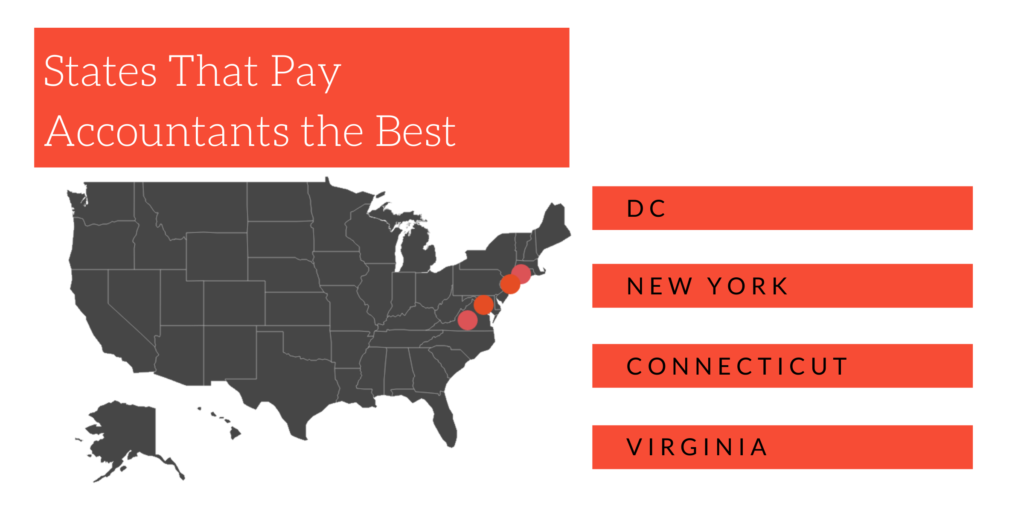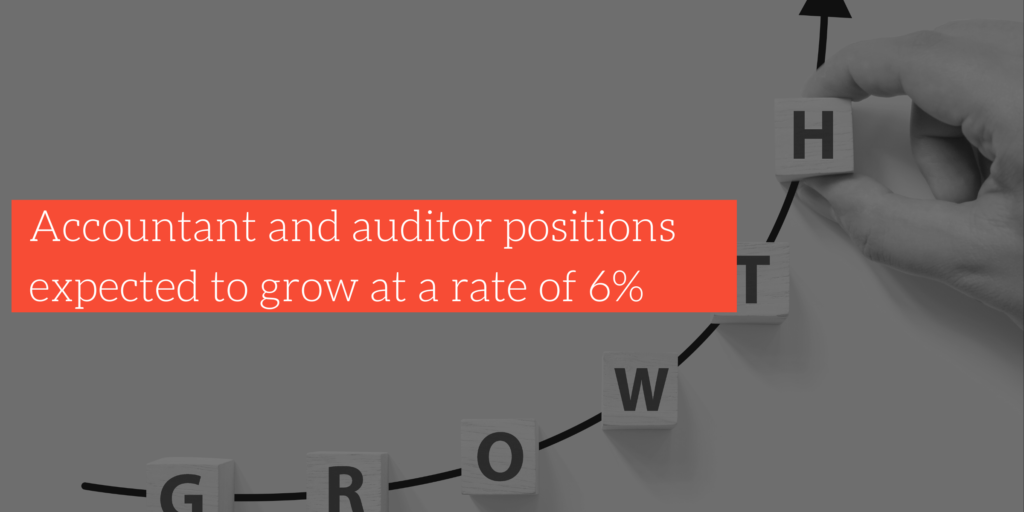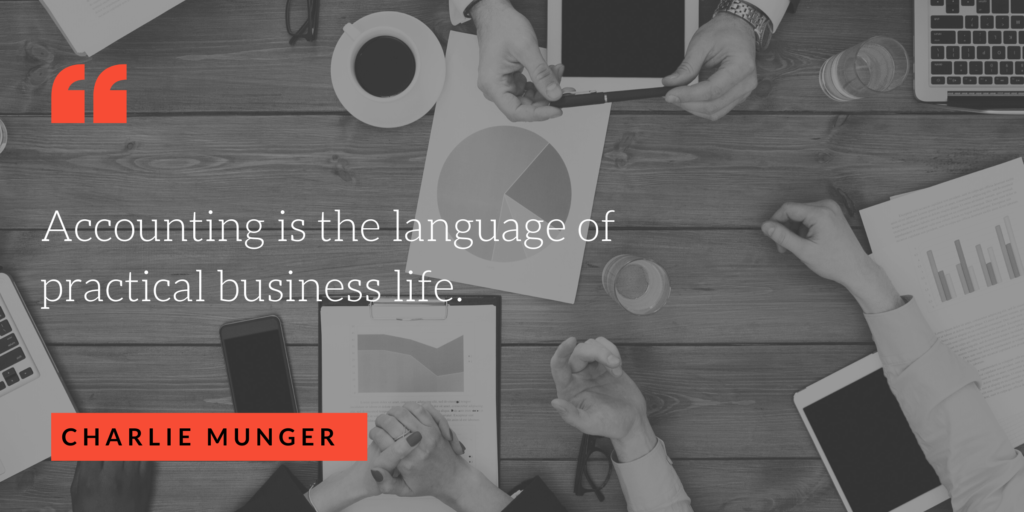Balanced budget requirements seem more likely to produce accounting ingenuity than genuinely balanced budgets. –Thomas Sowell
Luca Pacioli is considered the “Father of Accounting and Bookkeeping,” who made his name by publishing the first book detailing the double-entry bookkeeping system somewhere between 1470 and 1517. Since then, the field of accounting has evolved immensely to encapsulate vast groups of professional pursuits and academic philosophies.

In the modern day, an accountant is the doctor of the financial sector. Theirs is the domain of monitoring financial wellness and implementing plans to correct symptoms of financial dysfunction. If an accountant is a doctor of the financial world, their patient takes many forms–and might be an individual client, a small business, or a multimillion dollar company.
Much like doctors however, the daily roles of a professional accountant vary drastically depending on the chosen field of specialization. If you’re going in blind to the field accountancy, you may want to first familiarize yourself with the general daily duties of an accountant.
Accountants can specialize in a variety of fields from government auditor to forensic accountant to certified public accountant (CPA)–just to name a few. These positions mark only a small piece of the pie when it comes to career paths available within the accountant’s job market. So just like a doctor’s most important decision occurs when they choose in what practice they will specialize, the accountant’s most important decision will be choosing which specific accountancy skills to master.
In this guide we’ll look at a range of questions and considerations related to the most lucrative degrees and careers in accounting.
6 Questions to Consider Before Specializing

- Do you prefer working with individuals or groups of people?
-
- Answering this question can help you determine whether you wish to work with individual clients or within a company setting. Companies hire a predictable number of in-house accountants according to industry standards.
- Do you want to work in the private sector or within a government operation?
-
- Answering this question will help you determine your career path and the necessary prerequisites for maximizing the trajectory of that path. Be sure to explore the differences between government accounting positions and private sector accounting.
- Do you prefer teaching and learning, or do you prefer putting theory into practice?
-
- Answering this question can help you understand whether you are better suited for working within the academic realm of accountancy as a researcher or professor at university.
- Or whether you are better suited to put these skills to the test in the real world.
- It is also beneficial to understand the requisite skill-types of accounting careers, such as the math skills and critical thinking required to excel in accounting.
- Do you prefer working with more general accountancy topics in order to work in a variety of environments? Or perhaps you prefer mastering select accountancy skills to work in a specialized environment?
-
- Answering this question can help you understand whether your interests mesh better with general accountancy.
- Or if you lean towards pursuing demands for higher skill-caps.
- Do you prefer an entrepreneurial work environment, or do you require the security and predictability of traditional employment?
-
- Answering this question will help you determine whether you should pursue a degree valued in the entrepreneurial space.
- Or if you are better served pursuing a degree valued more by traditional employers.
- What sort of payscale do you desire for your career as an accountant?
-
- Answering this question is crucial for arriving at a chosen degree path, because the salaries vary so widely depending on what path one chooses.
To maximize an Accounting Degree Consider these Points before Converting your Time into Money
- Many accountants achieve upwards mobility in their careers through advanced education and through achieving specialized degrees.
- Other accounts achieve immense success through building real world professional experience.
- Thus the real decision is choosing between these two paths–resume building by education versus resume building by work experience.
- There is no right answer, as the best option will depend on countless factors such as personal strengths, desired career type, professional background, etc.
- But this consideration leads us to the best pointer here: lean into your strengths.
- If you excel with tests and learning then you may be best suited to distinguish yourself through a stellar education history, which may take the form of earning an advanced master’s degree or a PhD in accountancy, however if you are not suited to the classroom you may wish to take the shortest path to working within your chosen career, which may take the form of an associate’s degree in accounting or accelerate program. Some may even choose to pursue an accountancy career without any job experience.
- The most helpful follow-up here is that in 2020 there are as many accountancy degree programs to meet your needs as you could possibly hope for, so it is in your best interest to shop around and find a program that meets your particular needs and accentuates your strengths as a professional.
- In choosing your accountancy degree program, one of the final major decisions you will need to make is choosing between an online accountancy degree program or a traditional degree program.
- Also, it may surprise you that your credit score is an important metric used by employers to measure the aptitude of applicants. So if you decide to pursue a career in accounting, be sure not to forget the relationship between your credit score and your career as an accountant.
- A tangential suggestion is that even if you decide an accountancy degree is not your primary objective, it can be a great segway into other professional pursuits such leveraging an accounting degree to earn an MBA. Accountancy degrees can also act as a segway into jobs in a totally different field.
The Highest Paying Careers and Degrees in Accounting

- Salary information sourced from Payscale and Bureau of Labor Statistics (BLS)
- Careers follow from a Bachelor’s, Master’s, or PhD in Accounting
- Finance specializations may be required for some of these careers.
Auditor
Average Salary: $51,000
Requisite Degree(s): Bachelor’s or Master’s
An auditor’s daily responsibilities involve a wide array of skill sets where they work to validate the credibility or discredibility of an organization’s or individual’s financial claims. The variety of work environments of an auditor’s responsibilities are widespread–from jobs in federal organizations to jobs in private sector auditing companies. While the auditor’s average salary may not appear impressive, professionals can certainly work towards much more lucrative positions as an auditor.
Those who earn master’s level degrees in accountancy and auditing will be able to set their sites on supervisory auditor positions where the salary can easily break six figures. Professionals can likewise work towards this position by earning a robust work history if they decide against the entry-point by advanced education.
Tax Accountant
Average Salary: $51,000 – $70,250
Requisite Degree(s): Associate’s, CPA, Bachelor’s, or Master’s for Upper-Positions
Tax accountants work in a variety of environments, either in positions with the government or in the private sector to educate clients on tax regulations and the consequences for breaking them. Tax accountants may work with individual clients, or in team-setting where they work together to meet the needs of larger corporations.
The wide variety of job-types this implies is the reason for the disparity between average starting salaries listed above. Like many other of the job types listed in this section, a tax accountant can earn even higher salaries if they work in the more lucrative sectors of this profession, that is, federal tax accounting positions or upper-end corporate tax accounting–both of which will require either graduate education or an impressive pedigree of professional achievement.
Forensic Accountant
Average Salary: $73,000
Requisite Degree(s): Minimum – Bachelor’s, CPA certification, Master’s for Upper-Positions
Forensic accountants work in the legal sector of accountancy, often collaborating with legal teams to identify illegal financial maneuvering such as fraud or embezzlement. Given the litigious nature of this position, professionals often find themselves testifying in court, or advising groups on fraud-prevention techniques.
Forensic accountancy also offers professionals alluring high-end compensation. Should you decide to put in the time and effort to specialize in forensic accounting you could see upper-percentile salaries around $150,000 annually. This career path is ideal for those who enjoy interaction with legal proceedings and demonstrate high aptitude for pattern identification and high level statistical analysis.

Accounting Professor
Average Salary: $86,5000
Requisite Degree(s): PhD or Specialized Master’s in Accounting
Some students yearn for the academic environment even after graduating from their degree program. If you are one of these people then pursuing a teaching position as a professor may be the most rewarding path. As an accountancy professor you will work closely with students on a daily basis, while often pursuing individual passions through research projects or consultations with players in the industry.
The freedom and impressive salary do come with upper-end requirements however, and as such students interested in becoming a university-level professor will need to acquire at least a master’s level degree, but for earning a tenure-track position a PhD is likely mandatory.
Director of Finance and Administration
Average Salary: $88,600
Requisite Degree(s): MBA, or Master’s in Accounting
A director of finance and administration incorporates many elements of business and accounting. Thus there are many entry points into this profession, however all of them are fairly demanding in their prerequisites. An MBA with a specialization in accounting or finance, a law degree, or an advanced degree in accounting with a robust resume represent the most common backgrounds that culminate in this position.
Responsibilities of a director of finance run the gambit of team communication, leadership, and general accounting skills. This position is ideal for accountancy-minded professionals to incorporate entrepreneurial ideals in a freeform career that can be molded and directed toward individual interests and career goals.

Corporate/Accounting Controller
Average Salary: $95,600
Requisite Degree(s): Bachelor’s in Accounting, Master’s, or PhD
A corporate controller or accounting controller is the quarterback of a company’s financial operations. They function as the shot-caller for all major financial strategies of an organization, and thus act as a figurehead for the organization. Due to its prestigiousness it is one of the most lucrative positions in accounting, and represents one of the most competitive end-goals for accounting professionals.
In order to reach this position, you must be at the top of your game and must be one of the best accountants in the job market. You can certainly earn this accolade through a variety of strategies, but the fact remains–no matter what strategy you choose, to be hired as an accounting controller you must execute your professional prowess perfectly. This means your education record should be stellar, or your work record should place you on a discernible upwards trajectory. This is not meant to be discouraging, but should be an indication of the stringent requirements implicit in this position.
Internal Auditing Manager
Average Salary: $97,900
Requisite Degree(s): Master’s in Accounting; Specialization in Auditing Preferred
An internal auditing manager functions as an organization’s last line of defense when it comes to monitoring the wellbeing of its financial systems. Internal auditing managers will commonly oversee teams of accountants and other auditors in order to run financial checks and compile data in response to certain queries–which are often generated by executives or board members. So in this context, an internal auditing manager is a bridge between the organization’s financial branch and the executives.
While an internal auditing manager will not see the sort of professional freedom and level of responsibility of an accounting controller, they will be of comparable rank in an organization’s occupational hierarchy. Due to the highly specialized skill-set on call here however, their salaries average just below the six-figure mark; though experienced auditing managers can drive their salaries much further down range.
Investment Banker
Average Salary: $98,200
Requisite Degree(s): Bachelor’s in Finance; Master’s or PhD in Accounting helpful
The title of investment banker calls to mind a very specific job type, that is, the overseeing, directing, and advising a client on how to navigate the world of investing. The investment banker’s client can take the form of an individual or a large organization, and for this reason their work environment varies from private practice to working in teams of investment bankers at a large financial firm. Because of the variability in job responsibilities, salaries can vary quite drastically–though as seen above the average is nothing to sneeze at, and an impressive professional resume can see this number double, if not triple.
This makes investment banking one of the notorious professions for top-dollar salaries, though it should be noted that most investment bankers will achieve salaries closer to the average. The best degree to springboard one’s investment banking career is at least a bachelor’s degree in accounting with a specialization in finance. To work towards upper-echelon salaries, professionals will want to earn a graduate level degree in finance with an MBA reported as helpful in achieving success and employment as well.

Financial Planning and Analysis Manager
Average Salary: $99,100
Requisite Degree(s): Bachelor’s in Finance, Master’s optional
Financial planning and analysis managers employ a range of tools to develop comprehensive financial strategies for their clients. Working with individuals or large corporations, the scale of these strategies depends on the size of the financial budget and the overarching mission or goal of the client. While an investment banker will focus primarily on investing as a means of achieving financial success, a financial planner employs many strategies including investment to reach their goals.
The impressive salary attached to this job title is due to the managerial level of responsibility. Professionals aspiring to this position will want to cultivate solid communication and leadership skills while mastering both the fundamentals of financial planning as well as a distinguishing specialization. Financial planners commonly hold a range of degrees, but to become a managing financial planner, a bachelor’s degree in finance will be the minimum level of education required to break into this type of work, however advanced education and higher-end experience will be required to reach this position earlier in one’s career.
Financial Director
Average Salary: $111,300
Requisite Degree(s): Minimum of Bachelor’s, Master’s or PhD preferred, MBA optional
A financial director is a position closer to the top of an organization’s professional hierarchy. As such financial directors are usually c-level executives that have a wide-range of professional and academic achievement. For this reason, this type of position is usually only obtained after demonstrating years of success in financial planning, and might for instance represent a large promotion of a financial planning
manager.
If you wish to target this position you will need to distinguish yourself through both professional excellence and through unmitigated success throughout your advanced education. As discussed in the sections above, there is often a trade-off between work experience and advanced education, but in the case of the last three finance jobs on this list, both will be required.

CFO (Chief Financial Officer)
Average Salary: $130,200
Requisite Degree(s): Master’s or PhD, MBA or law degree/specialization optional
If a financial director is a leap up from a financial planning manager, then a CFO is the leap from financial directing. A chief financial officer monitors and manages every cent spent by an organization and is a career end-goal for many finance professionals, and thus the CFO position requires not only a remarkable level of professional success, but also usually only comes after spending years with a firm. In other words, this position is usually assigned to individuals who have not only achieved great success within the larger finance industry, but who have also demonstrated inter-organizational superiority.
For this reason there is no set course of preparation to guarantee one will reach this position in their careers, though there is certainly plenty one can do to hedge their bets. CFOs usually hold multiple degrees and certifications across various fields with an MBA often held in addition to a law degree with various certifications. Professionals who aspire to this position will want to master all the finer points of business and networking, while climbing the ranks of the finance world.
Vice President of Finance
Average Salary: $134,700
Requisite Degree(s): Master’s, PhD, MBA or law degree/specialization optional
Representing a rare professional opportunity, a VP of Finance is a professional who has excelled as both an executive and a chief financial officer. This role often entails all the tasks and roles of running a large company or corporation. They work closely with the organization’s team of chief executives, any board members, or trustees. They not only oversee all financial operations within a company, but also direct the overarching strategies of all the organization’s departments and in terms of daily operations are second-in-command only to the president of the company–if there is one.
This position is so unique that it is difficult to advise on how to prepare. Since the role involves running a company, the preparation therein will depend on the type and scale of the company. Perhaps the most actionable advice is to join a startup or start your own company in order to work in this position at a smaller scale, then expand your company over time or build the experience necessary to earn employment as a VP of finance at a larger company. General educational preparation will involve the most advanced degree you can earn within your interests with parallel education in an MBA or law degree helping immensely.

Final Takeaways about Lucrative Accounting Degrees and Careers
- Much like a doctor, the accounting profession is defined by chosen specializations. An IRS investigator and budget analyst will hold similar but different education backgrounds. So decide early and choose wisely which specialization you will pursue.
- While this may sound overwhelming, you can begin the preparation immediately in order to ease the burden on yourself. You can even begin preparation for an accounting career while still in high school.
- Review how long it will take you to get your accounting degree, so that you can map out your plan for balancing your education with your professional advancement.
- Review the benefits of pursuing a general accounting degree in comparison to an associate’s or master’s in accounting within the context of your desired career path. Perhaps you value pursuing the easiest degrees to obtain in accounting. Or you may discover that you are best-served pursuing an MBA in Accounting.
- After choosing your degree path, review the highest paying jobs with a general accounting degree, associate’s degree, or master’s degree, then choose your entry-point into the job(s) that best match your goals.
- Check the FAQ list below to review the class requirements, degree comparisons, or any other information you are interested in.
- But most importantly, it is crucial to remember that nobody’s life path follows a totally predictable straight line to the life of their dreams. So be flexible, take care of yourself, and don’t give up until you are where you want to be.
Review These Resources to Make the Most Informed Decision Possible
Common Questions about Accounting Jobs
- What are the typical duties of accounting clerks?
- What is the typical salary of an accounting clerk?
- What are the typical duties of accounting controllers?
- What is the typical salary of an accounting controller?
- What are the typical duties of accounting assistants?
- What is the typical salary of an accounting assistant?
- What is the difference between an accounting clerk and accounting assistant?
- What areas of study are needed to become a CPA?
- Where can I work with a degree in forensic accounting?
- What Are My Degree Choices in Fraud Analysis?
- How Do I Become a Financial Forensics Investigator?
- What Degree Do You Need to Be a Private Investigator?
Common Questions about Accounting Job Salaries
- What are the highest paying jobs in accounting and auditing?
- What are the highest paying jobs with a master’s in accounting?
- What are the highest paying jobs with a degree in accounting?
- What are the highest paying jobs with an associate’s in accounting?
- What is the salary potential for someone with an accounting degree?
Common Questions About Accounting Degree-to-Career Options
- What kind of government jobs can you get with an accounting degree?
- What kind of jobs can you get with a degree in accounting?
- What kind of jobs can you get with a degree in financial accounting?
- What kind of jobs can you get with a master’s degree in accounting?
- What kinds of jobs can you get with an associate’s degree in accounting?
- What kinds of non-tax jobs can you get with an accounting degree?
Common Questions About Accounting Degrees and Preparation
- Will I receive benefits worthy of the time and money needed to earn an Accounting PhD?
- If I get an accounting job in another state, will my employer help me learn the tax laws of that state?
- What are some of the most common accounting programs I should be familiar with?
- Will I receive benefits worthy of the time and money required to earn a Master’s of Accounting?
- Do I need an internship with my accounting degree?
- How advanced does my degree need to be to become a CPA?
- How advanced does my degree need to be to get a good job?
- How do I prepare for an accounting degree while in high school?
- How long does it take to get a degree in accounting?
- How much math is required in an accounting degree?
- How much math is required in a master’s of accounting degree?
- What are the benefits of earning a degree in accounting?
- What degree do managerial accountants have?
- What degree do public accountants have?
- What Degree Do I Need to Be a Tax Accountant?
- What finance jobs can I do with an accounting degree?
- What should I know before interviewing for an accounting job?
Comparing the Demand and Value of Accounting Degrees
- Accounting degree versus business degree
- Accounting degree versus finance degree
- Accounting degree versus mathematics degree
- Accounting degree versus economics degree
- How do the benefits of a bachelor’s in accounting compare to a master’s in accounting?
- How do the benefits of a bachelor’s in accounting compare to an associate’s?
- What is the demand for a degree in accounting?
- What is the demand for a master’s degree in accounting?
- How Many Jobs Are Available in Finance?
- What is the difference between a bachelor’s and master’s in accounting?
- What is the difference between an MBA and a master’s in accounting?
- What is the difference between a bachelor’s and associate’s in accounting?
What are the fastest schools for certain degrees?
- Fastest schools for a degree in accounting
- Fastest schools for a master’s degree in accounting
- Fastest schools for an associate’s degree in accounting
Accounting Class Requirement Questions
- What classes will I have to take for a degree in accounting?
- What classes will I have to take for a degree in financial accounting?
- What classes will I have to take for a degree in managerial accounting?
- What classes will I have to take for a degree in tax accounting?
- What classes will I have to take for an MBA in accounting?
- What classes will I have to take for a degree in forensic accounting?
Accounting Degree Rankings
For Further Reading:
